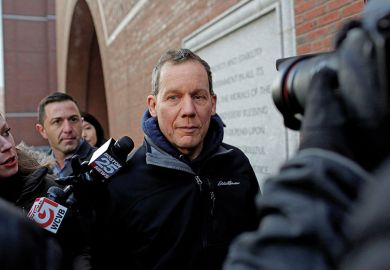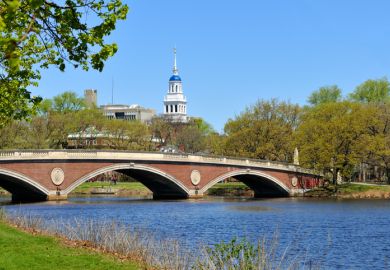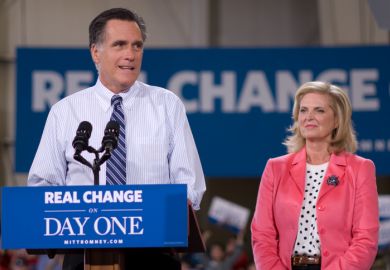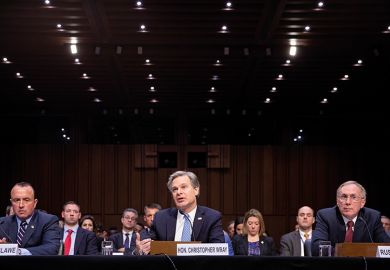The arrest of a star Harvard University scientist is having its intended effect, making US academic researchers fearful of maintaining their ties with China, government prosecutors have asserted.
An array of top federal officials – including the US attorney general, William Barr, and the FBI director, Christopher Wray – took the opportunity of a conference in Washington on China policy to emphasise the lesson they saw in the prosecution of Charles Lieber.
“Some might complain that this will have a chilling effect on collaboration with Chinese institutions,” Andrew Lelling, the US attorney for Massachusetts, who orchestrated Professor Lieber’s arrest, told the gathering. “And the answer to that is, for good and bad reasons, yes, it will.”
Professor Lieber, the chair of Harvard’s chemistry department and one of the world’s most accomplished chemists, was arrested on 28 January on a single charge of making false statements to US government agencies. Federal prosecutors have acknowledged that they don’t believe he is a spy, but accuse him of misleading them and Harvard about the extent of a $1.5 million (£1.2 million) partnership he established in 2013 with Chinese academics.
The charge represents the most high-profile in a series of cases in recent months in which federal investigators have either arrested researchers suspected of having undisclosed China ties, or prodded their institutions to fire them.
Many academics have questioned whether a legitimate effort to root out espionage in the governmental and corporate sectors is misguided when applied to the intentionally open and collaborative nature of academia.
That struggle was on full display at the Washington conference, hosted by the Center for Strategic and International Studies, a thinktank with conservative origins.
Mary Sue Coleman, the former University of Michigan president who now heads the Association of American Universities, said that government enforcement was the “most helpful thing to convince our faculty” of the seriousness of the threat posed by China.
“When they see a department chair at Harvard being called to account, who may go to jail, believe me that has done more to help us than anything abstract that we could possibly have done,” she said.
Efforts to teach academics about financial disclosure laws have “been very instructive to people who are just innocent, and I have to believe that there are some innocent people out there”, Dr Coleman said. “So I don’t want us to create some sort of a terrible approach.”
While Professor Lieber has attracted condemnation from some in US higher education, several closer to him have expressed surprise that he would have done anything to intentionally undermine US national security.
Professor Lieber’s formal 2013 establishment of his partnership with China’s Wuhan University of Technology also was publicly reported at the time, during a period when the Obama administration was enthusiastic about US-China research projects.
Mr Wray, Mr Lelling and the other federal law enforcement officials urged US research universities to establish more rigorous financial disclosure policies, to vet foreign nationals on campus more thoroughly, and to come to them regularly with any questions.
But Douglas Girod, chancellor of the University of Kansas, and Gregory Fenves, president of the University of Texas at Austin, both said that the federal government hasn’t been clear on critical details, such as how universities can be expected to assess the fitness of visitors or reliably synthesise an array of disclosure rules that vary by agency.
Register to continue
Why register?
- Registration is free and only takes a moment
- Once registered, you can read 3 articles a month
- Sign up for our newsletter
Subscribe
Or subscribe for unlimited access to:
- Unlimited access to news, views, insights & reviews
- Digital editions
- Digital access to THE’s university and college rankings analysis
Already registered or a current subscriber?








